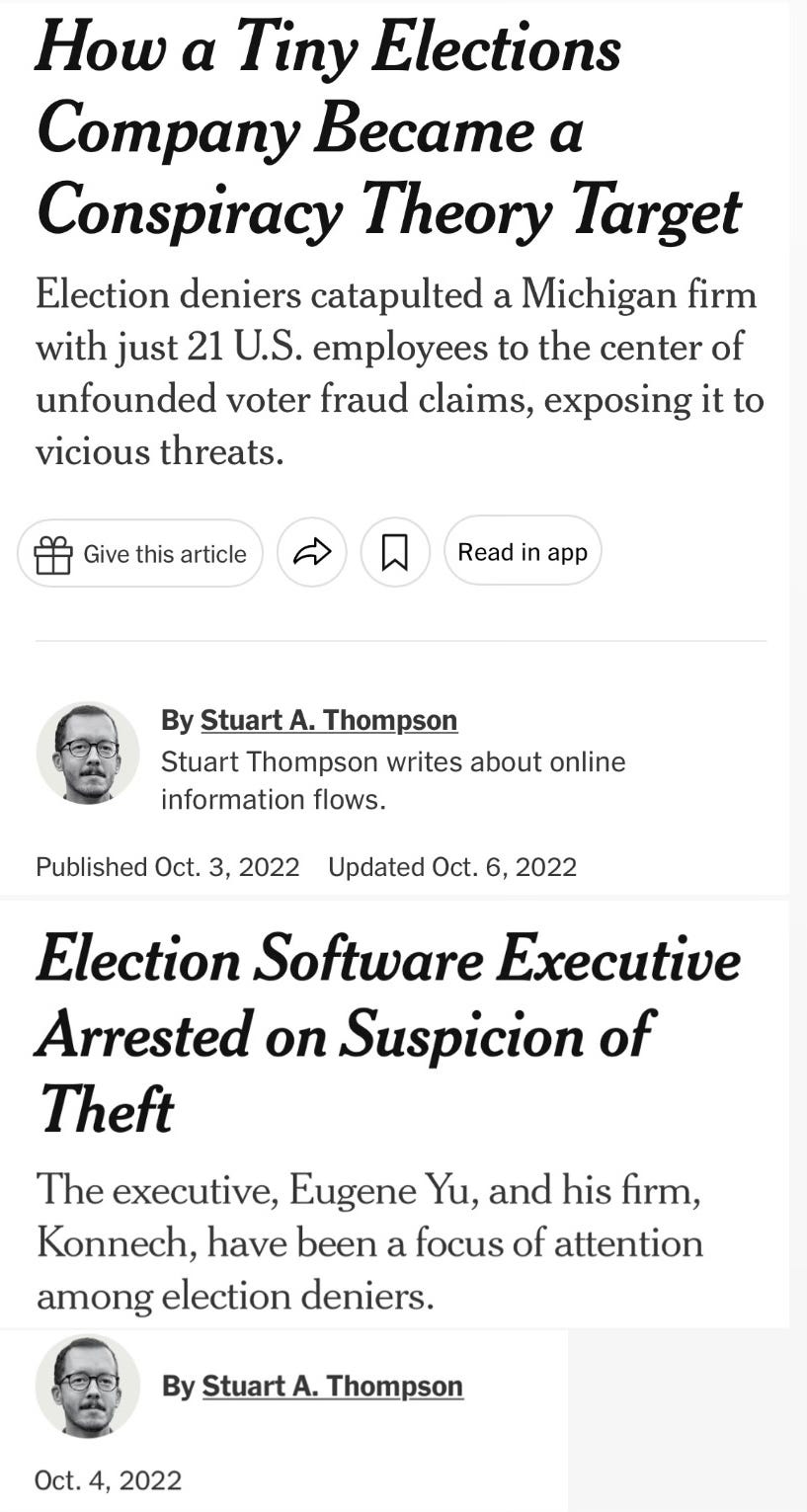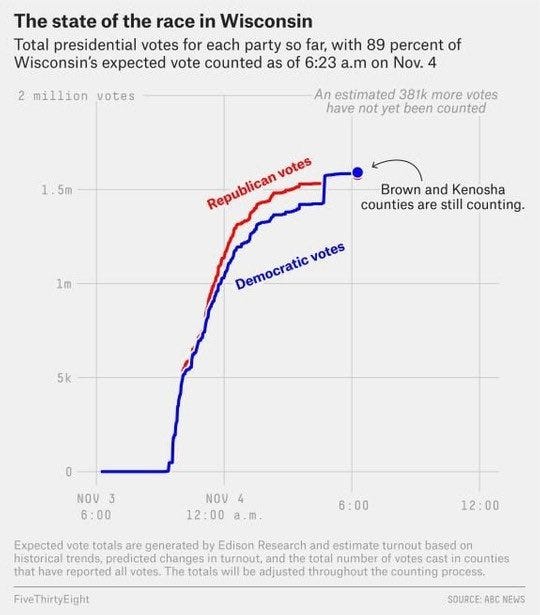Similarities between the 2022 Brazil Election and the 2020 U.S. Election Should Raise Eyebrows
Brazil takes a turn to the left after Lula beat Bolsonaro to the Presidency but supporters of 'far-right' Bolsonaro are crying foul play, do they have a point?
DEAR EMAIL SUBSCRIBER: THIS POST WILL UPDATE. PLEASE REFER TO THE WEBSITE VERSION FOR THE LATEST EDITION OF THIS POST.
What to Expect in this Post:
- The Spectre of Election Fraud:
Right-leaning candidates pushed election fraud claims before the 2020 U.S. and the 2022 Brazil Elections causing supporters to question their election’s legitimacy.
- The Right vs the Media:
Supporters of the right-leaning candidates in the 2020 U.S. and the 2022 Brazil Elections turned against the media, who they felt were biased against them.
- Conspiracies Abound:
Supporters of the right-leaning candidates in the 2020 U.S. and the 2022 Brazil Elections went to bed with their choice ahead in the polls, only to learn that the lead had been lost through the night. Many still believe that foul play was at hand.
- American Intervention in Brazil:
Following Biden’s Presidential victory in 2020, high-ranking members of his administration headed to Brazil to warn Brazilian officials to safe-guard their election.
- Calls for Military Intervention:
Several key figures during the 2020 U.S. Election called for martial law to be invoked in order to overturn what they described as an illegitimate result. Similar calls for military intervention in Brazil could be actionable.
- Post-Election Protests:
Truckers have blockaded roads across Brazil following Lula’s election victory taking inspiration from similar actions in Canada and the Netherlands.
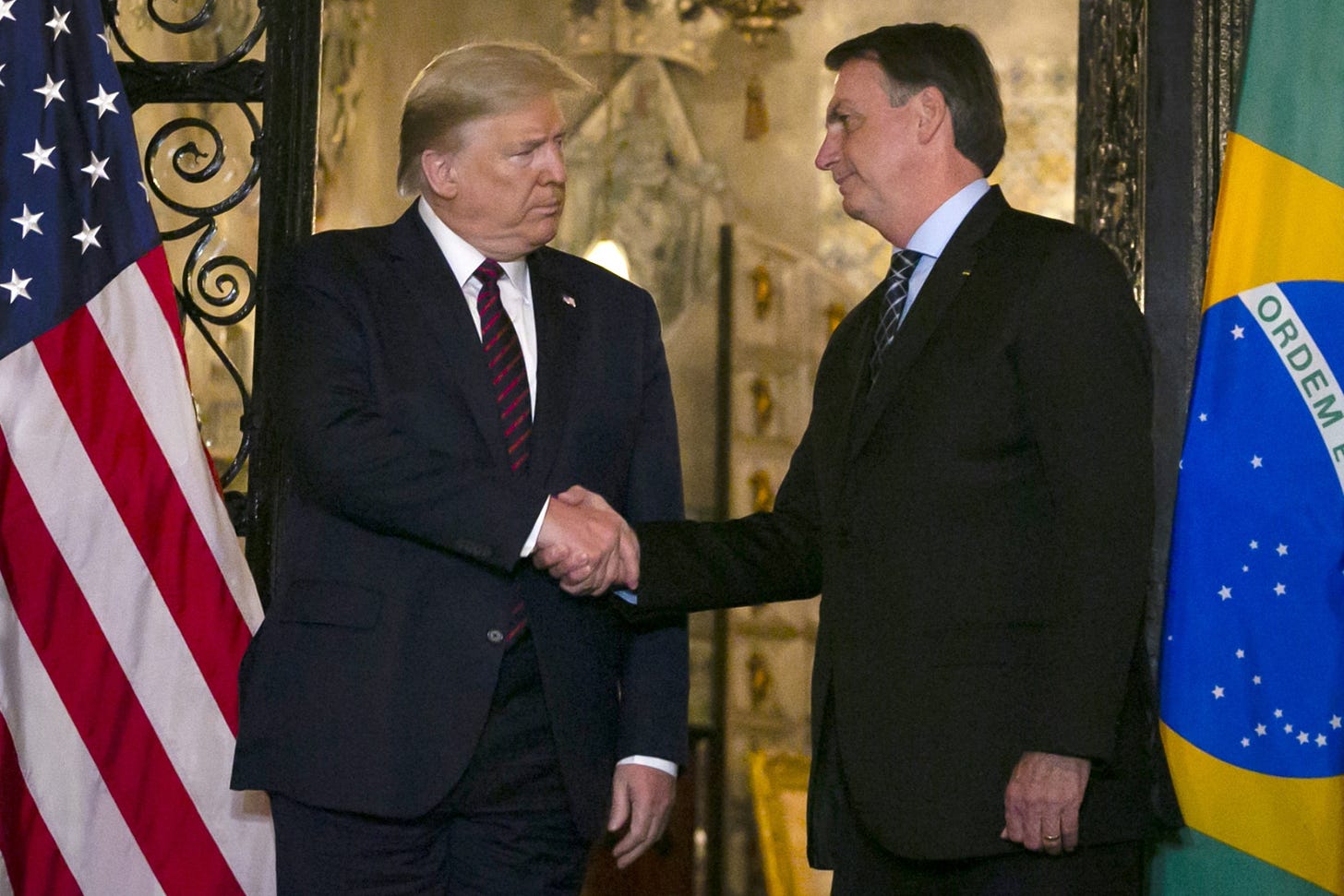
The Spectre of Election Fraud:
Lula da Silva unseated Jair Bolsonaro as President of Brazil by a margin of 1.8% after a tight election that was marred by controversy. The rumours started a month before the election when WhatsApp messages suggesting Smartmatic’s vote-counting software was going to be used in the upcoming election went viral.

Bolsonaro, who was leading in the polls at the time, accelerated the spread of these allegations by suggesting that “there's always the possibility of something abnormal happening in a fully computerised system.” Later asserting that “the system [was] completely vulnerable."
These allegations spurred a multitude of ‘fact-check’ articles declaring that the statements were conspiracy theories but this is nothing new for Smartmatic.
Like Bolsonaro, Trump also spent the early stages of his 2020 campaign calling attention to possible election fraud. He claimed that the Democrats were “politicising the coronavirus” in order to push for the expanded use of mail-in ballots, which he suggested would make it easier for people to cheat.
Another software company often confused with Smartmatic, Dominion Voting Systems, was alleged to have used algorithms to manipulate the vote-count in favour of the Democratic candidate, Joe Biden—who currently has a disapproval rating of 60% heading into the 2022 U.S. Midterms, according to the latest Gallup poll.


Despite a front-line defence from ‘fact-checkers’, Smartmatic hit back against allegations of election fraud with several multi-million-dollar lawsuits against Fox News, Donald Trump’s Lawyer, Rudy Giuliani, lawyer, Sidney Powell and My Pillow founder, Mike Lindell.
One of their lawyers is reported to have said that people demanding an election audit were “akin to a Flat Earther demanding evidence that the planet is round.”
These lawsuits, it has been argued, form part of a coordinated attack to bankrupt and silence anyone who speaks out about election fraud and are often referred to as SLAPP suits.
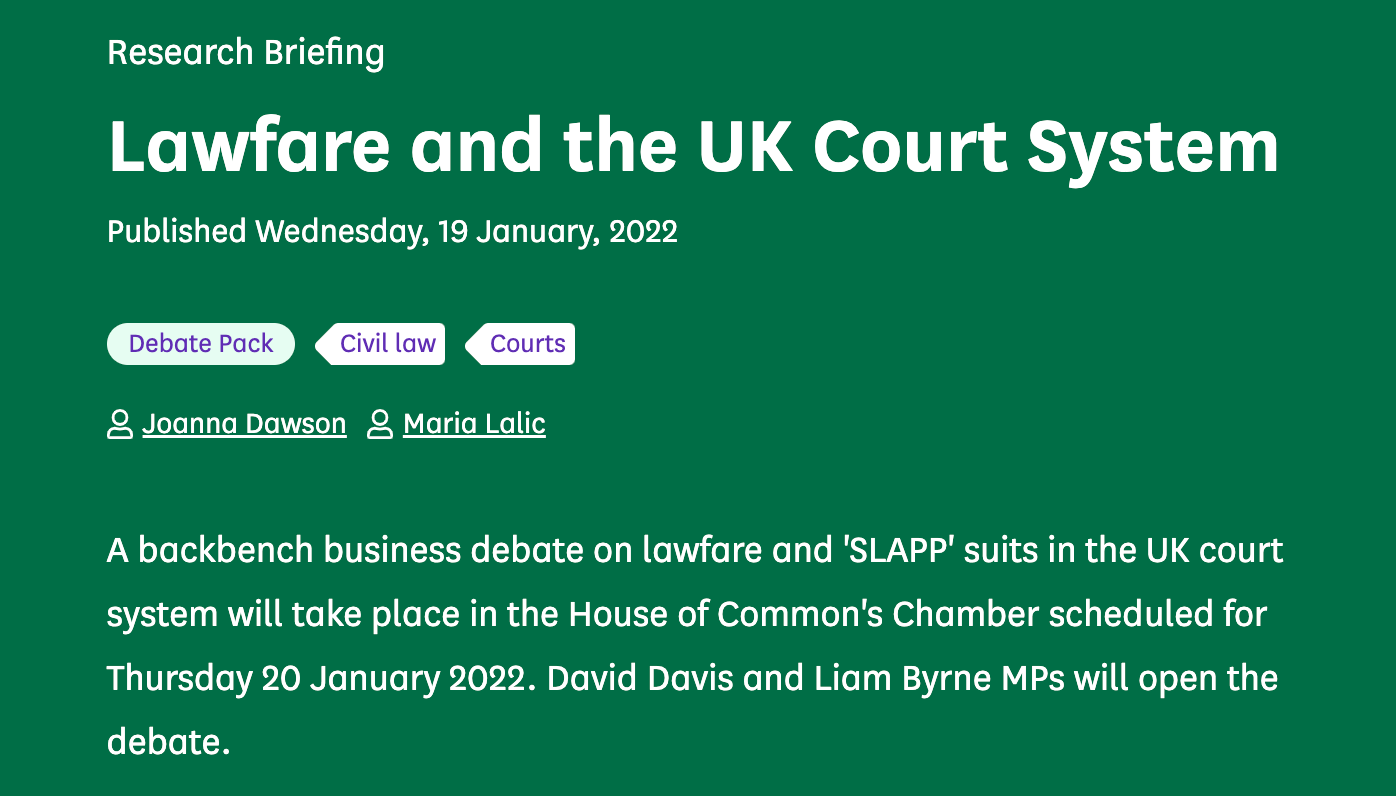
SLAPP stands for ‘Strategic Litigation Against Public Participation’ according to an article in the House of Commons Library and “refers to legal claims which are perceived to be brought in order to silence a critic by engaging them in costly litigation, rather than because of their legal merit…such cases have been said to cause a ‘chilling effect’ on freedom of expression, by deterring journalists and others from publishing criticism or allegations of wrongdoing with the threat of legal action.”
According to their website, Smartmatic “pioneered voting machines with voter-verified paper records, a feature that is now the de facto standard for automated elections worldwide” and “has been deployed in more than 30 countries…[tabulating] more than 6.5 billion votes with zero security breaches.”
The Right vs the Media:
Indeed, this claim of “zero security breaches” was furthered by Chris Krebs, director of the Cyber and Infrastructure Security Agency (CISA), who condemned Trump’s now-infamous assertion that the 2020 election was stolen and defended both Smartmatic and Dominion Voting Systems by declaring that the 2020 election was “the most secure in American history.”

In one of his last acts as President, Trump fired Krebs but this only emboldened the former director of CISA, who would later call for Trump to resign or face impeachment. Trump, of course, was then censored and banned from all social media for allegedly inciting the January 6th riot on the Capitol building and then impeached though he beat the case.
Krebs’ comments riled up Trump’s MAGA-base, who have been described as white-supremacists and conspiracy theorists in the aftermath of the 2020 election, but the recent arrest of Eugene Yu, CEO of Konnech, another election software company, may have renewed their hopes of a Trump comeback and the confused coverage of the story goes someway in proving to them that mainstream media has covered-up election fraud.
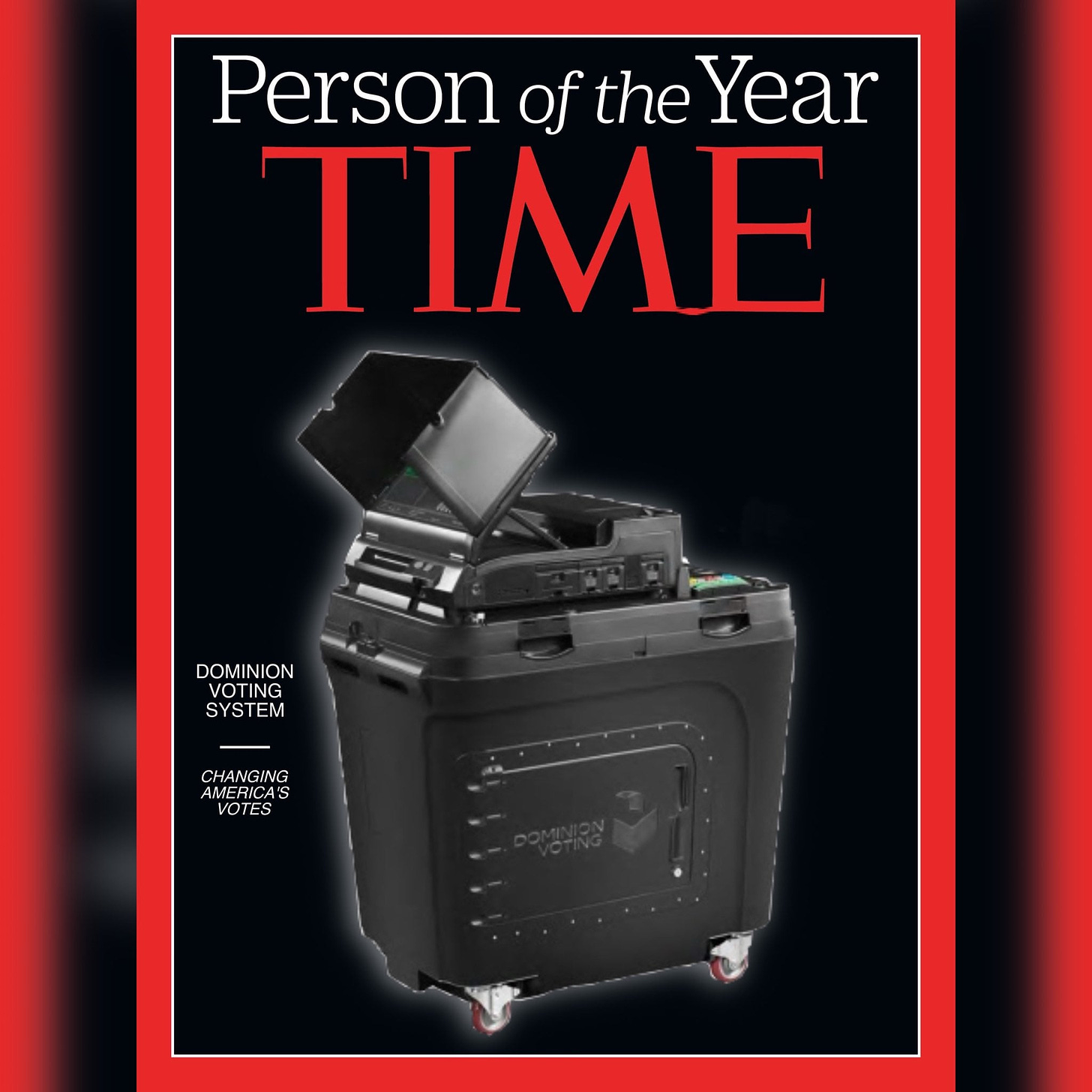
On October 3rd 2022, the New York Times published an article called “How a Tiny Elections Company Became a Conspiracy Theory Target” with the subtitle “Election deniers catapulted a Michigan firm with just 21 U.S. employees to the center of unfounded voter fraud claims, exposing it to vicious threats.”
This article was immediately seized upon by Trump supporters, who pointed out that the very next day the exact same author, Stuart A. Thompson, wrote an article explaining that the Konnech CEO had been arrested for allegedly allowing election data to be sent to China, a clear and direct violation of election law.
The swift arrest of Eugene Yu not only caught the New York Times off-guard, exposing both it’s bias and blindspots; it also gave renewed strength to the legions of MAGA-supporting Americans that the newspaper is repulsed by; voters whose faith in the 45th President may have been waning.
Conspiracies Abound:
Supporters of both Bolsonaro in 2022 and Trump in 2020 went to bed on election night believing that their man was going to win, only for a huge, final push from Lula and Biden supporters to spoil their breakfast.
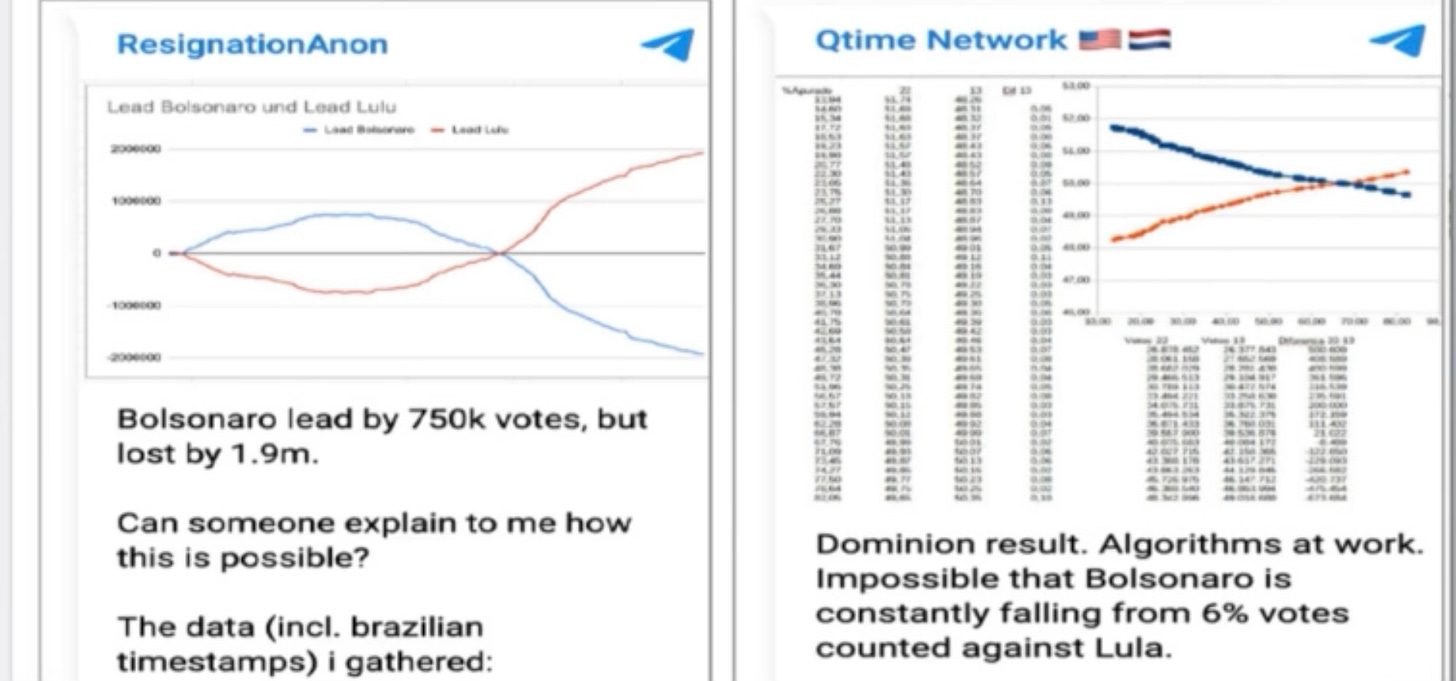
Both sets of supporters now believe that the election was rigged by election software companies controlled by, what Time Magazine called “a well-funded cabal of powerful people, ranging across industries and ideologies, working together behind the scenes to influence perceptions, change rules and laws, steer media coverage and control the flow of information.”
Only last month, Giorgia Meloni, the first female Prime Minister of Italy, suggested that the key figure working against her campaign was George Soros, a powerful, Jewish businessman and philanthropist, who is linked to a host of conspiracy theories from the Illuminati to the ‘World Economic Forum’s Great Reset’ and even more recently, he was criticised by Kanye West for allegedly 'controlling the media’.
Meloni declared that “when you are a slave, you act in Soros’s interests” and this declaration is tied to ‘the Great Replacement theory’, which the Financial Times explains “is a plan, hatched by elite financiers, to dilute Europe’s Christian culture by promoting immigration” with the end goal “to turn Europeans into ‘slaves’ and mindless consumers, stripped of their national and gender identities.”
Trump and Bolsonaro supporters alike claim that Soros is the man behind the ‘vote-counting manipulation’ and, of course, fact-checkers have de-bunked the viral conspiracy that Soros owned Smartmatic but this is a false dichotomy. The chairman of Smartmatic and the SGO Group, Mark Malloch-Brown also serves on Soros’ Open Society Foundation Global Board, which means that Soros could have indirect influence over the vote-counting software whether he owns the company or not.
American Intervention in Brazil:
For all the mainstream news outlets that accuse the Republican party of being the party of voter-fraud and suppression, in the clip below, it appears that even Joe Biden seems to think that the Democratic party are the party who “put together…the most extensive and inclusive voter fraud organisation in the history of American politics.”
Don’t forget that it was top officials from the Biden administration who had meetings and calls with Brazilian officials in order to quell Bolsonaro’s alleged efforts to subvert the results of the election. William Burns, Director of the CIA, travelled to Brazil just months after Biden took office in July 2021 to warn Brazilian officials that Bolsonaro should stop casting doubt on their electoral system.
Calls for Military Intervention:
In the aftermath of the 2020 U.S. election there were several reports claiming that Donald Trump had spoken to lawyers who had suggested that he invoke martial law in order to use the military to overturn the election result.
This action was never taken but the idea was popular among some sections of his support and pushed by lawyer, Lin Wood, and General Michael Flynn, who was pardoned by Trump at the end of his presidency.
Similar calls are now being made in Brazil but military intervention appears more likely given the fact that Jair Bolsonaro is a former army captain and, at one point, a third of his cabinet were active or retired military officers.
Moreover, there are some confusing provisions in the Brazilian Constitution, notably Article 142, which states that the Armed forces shall “guarantee the constitutional branches of government and, on the initiative of any of these branches, law, and order.”
Post-Election Protests:
Following Lula’s election victory, Brazilian truckers—likely inspired by farmers in the Netherlands and truckers in Canada—have blockaded roads across Brazil in protest of what they believe is a fraudulent election. Bolsonaro refusal to concede, following Trump in 2020, may have spurred them into action.
In the days and weeks after the U.S. election, Trump and his acolytes pushed for protests like the ‘Stop the Steal’ rally, which ultimately culminated in the so-callled ‘January 6th insurrection’ where protestors stormed the Capitol building and Ashli Babbitt, a veteran and Trump supporter, was shot and killed.
It has been alleged by many supporters of Trump that the Capitol police allowed and encouraged protestors to enter the building. Similarly, Alexandre de Moraes, Brazil’s top electoral official, who ordered highway police to “take all necessary measures” to clear the truckers’ blockades, has threatened to imprison the force’s chief if he does not comply.
So, is there something behind these election fraud claims or are they simply conspiracy theories pushed by radicalised supporters of far-right presidents?



